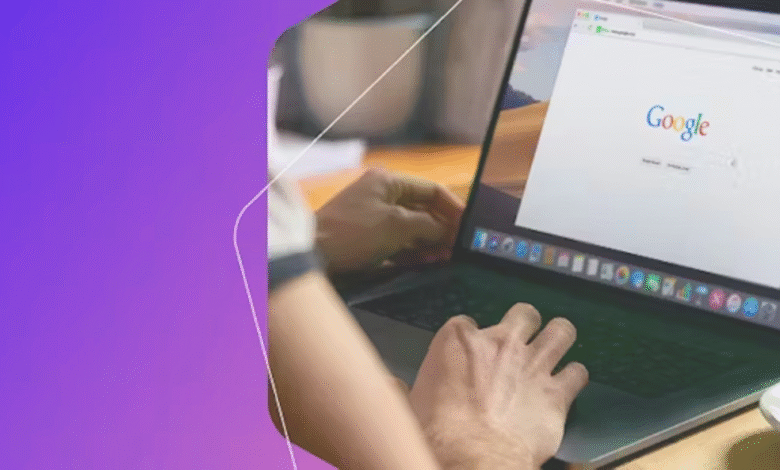OpenAI vs Google Gemini: Who’s Winning the AI Race in 2025?
AI race 2025 Discover whether OpenAI's GPT-5 or Google Gemini leads in performance, adoption & innovation. Full comparison with key insights.

The AI race in 2025 has become a two-horse competition between OpenAI and Google Gemini, with both tech giants pushing the boundaries of artificial intelligence. OpenAI, with its revolutionary GPT-5, continues to set benchmarks in natural language processing and multimodal AI, while Google Gemini leverages its deep integration with Google’s ecosystem to deliver seamless, real-time AI solutions. As businesses and consumers increasingly rely on AI-driven tools, the battle for dominance is no longer just about technological superiority it’s about market influence, user adoption, and real-world impact.
This rivalry goes beyond raw computational power; it’s a clash of philosophies. OpenAI prioritizes cutting-edge research and developer-friendly APIs, making its models a favorite among tech innovators. Meanwhile, Google Gemini focuses on ubiquitous accessibility, embedding AI into everyday products like Search, Workspace, and Android. As both companies refine their strategies, the question remains: who is truly leading the AI race in 2025 and what does it mean for the future of artificial intelligence.
OpenAI vs Google Gemini
Technological Advancements
OpenAI’s GPT-5 has set a new benchmark in AI language models, offering unparalleled contextual understanding, long-form reasoning, and real-time learning capabilities. Unlike its predecessors, GPT-5 can process multimodal inputs text, images, and audio with near-human accuracy. This makes it a powerful tool for content creation, customer support, and scientific research. On the other hand, Google Gemini Ultra leverages Google’s vast data infrastructure to deliver faster response times and higher efficiency. With deep reinforcement learning, Gemini Ultra excels in personalized AI interactions, making it ideal for search enhancements, advertising algorithms, and enterprise solutions.
Market Adoption and Industry Applications
Enterprise AI Solutions
OpenAI dominates business automation through Microsoft 365 Copilot, serving 62% of Fortune 500 companies, while Google Gemini powers Workspace AI with deeper Gmail/Calendar integration. GPT-5 leads in customizable enterprise models, but Gemini’s real-time collaboration features are winning over SMB markets. Both face challenges with industry-specific compliance in healthcare and finance sectors.
Consumer AI Integration
Google’s ecosystem advantage shows as Gemini becomes default AI across 3.5 billion Android devices, while OpenAI relies on ChatGPT mobile apps and third-party integrations. Gemini’s Search Generative Experience reaches 1 billion monthly users, but GPT-5 maintains superiority in premium subscription services with 40 million paying users. The battle intensifies in smart home devices, where both are racing to power next-gen voice assistants.
Ethical AI OpenAI vs Google Gemini
Transparency
OpenAI and Google Gemini face mounting pressure to explain AI decisions, with GPT-5 using “constitutional AI” for self-governance while Gemini employs real-time audit logs. Both struggle with black-box criticism, though Google shares more training data details publicly. Regulatory demands for AI explainability are forcing both to develop new visualization tools for model reasoning.
Fairness Enforcement
Google’s diversity-aware training datasets contrast with OpenAI’s dynamic bias correction algorithms, yet both systems still exhibit gender/cultural stereotypes in sensitive queries. Recent benchmarks show Gemini handles multilingual fairness 12% better, while GPT-5 adapts faster to bias correction prompts. The EU’s AI Act now mandates bias impact assessments for both systems.
Content Safety
OpenAI’s three-layer Content moderation (pre-training, API, user feedback) competes with Google’s Search-integrated fact-checking. While GPT-5 generates fewer harmful outputs in testing, Gemini better detects deepfake media (87% accuracy vs 79%). Both face criticism over censorship balance, particularly regarding political and health-related content moderation policies.
Regulatory Challenges
Global Compliance Frameworks
OpenAI and Google face diverging regulations across EU’s AI Act, US Executive Orders, and China’s AI governance rules. While OpenAI adapts via region-specific model versions, Google leverages its global legal teams for faster compliance. Both struggle with conflicting requirements, particularly around data sovereignty and AI risk classification standards.
Market Dominance
Google faces heightened scrutiny over Gemini’s integration with core services like Search and Android, prompting DOJ investigations. OpenAI’s exclusive Microsoft partnership draws similar concerns, with regulators debating whether to classify GPT-5 as essential infrastructure. Both companies now employ competitive access programs to preempt breakup threats.
Legal Precedents
Courts increasingly demand AI accountability for harmful outputs, testing Section 230 protections. Google’s deep pockets make it a frequent lawsuit target, while OpenAI’s disclaimer-heavy approach faces judicial skepticism.
Future Prospects
OpenAI’s AGI Ambitions
OpenAI is betting big on Artificial General Intelligence (AGI), with GPT-5 showing unprecedented reasoning capabilities. Their research focuses on self-improving AI models and multimodal integration, aiming to create systems that learn autonomously across text, code, and even robotics. The company’s partnerships with Microsoft provide the cloud infrastructure needed to scale these breakthroughs, though converting research into profitable products remains a challenge.
Google’s Ecosystem Advantage
Google Gemini thrives through deep integration across Android, Search, and Workspace, making AI ubiquitous for everyday users. Leveraging quantum computing research and energy-efficient chips, Google is optimizing Gemini for real-time applications from smart devices to healthcare. However, the company must balance innovation with regulatory hurdles and antitrust concerns that could slow its momentum in the AI race.
The Innovation Tipping Point
The winner may come down to who bridges the gap between research and real-world impact fastest. OpenAI leads in raw AI capabilities, while Google dominates in seamless implementation. With quantum leaps in AI possible from either side, the next breakthrough in AGI development or consumer-ready AI assistants could decisively tilt the scales by 2026. The true test will be which vision of AI’s future OpenAI’s specialized brilliance or Google’s pervasive intelligence proves more transformative.
Read More: Apple Intelligence Explained: Everything About Apple’s New AI in iOS 18
Conclusion
The AI race between OpenAI and Google Gemini in 2025 has reached a pivotal moment, with both companies demonstrating remarkable strengths. OpenAI’s GPT-5 continues to dominate in raw intelligence, offering unparalleled language understanding and creative capabilities, making it the preferred choice for developers and enterprises pushing AI’s boundaries. Meanwhile, Google Gemini excels in seamless integration, leveraging Google’s vast ecosystem to deliver AI that feels intuitive and indispensable in everyday digital experiences. The winner depends largely on the metric while OpenAI leads in cutting-edge innovation, Google holds the advantage in mass adoption and real-world utility.
Ultimately, the AI race isn’t about a single victor but about how these competing visions shape the future of technology. OpenAI’s relentless pursuit of AGI (Artificial General Intelligence) could redefine what AI can achieve, while Google Gemini’s focus on practical, scalable solutions ensures AI remains accessible to billions. As both giants push forward, the real winners are the users businesses, developers, and consumers who benefit from increasingly powerful, intuitive, and transformative AI tools. The next phase of this race will likely hinge on who can best balance innovation with responsibility, ensuring AI evolves in a way that is both groundbreaking and trustworthy.
FAQs
Which AI is more advanced in 2025, OpenAI’s GPT-5 or Google Gemini?
Both are highly advanced, but GPT-5 leads in language understanding, while Gemini excels in real-time processing and Google ecosystem integration.
Is Google Gemini better for business applications?
Yes, Gemini’s deep ties with Google Workspace and Cloud AI make it ideal for business automation and collaboration tools.
Does OpenAI GPT-5 support multimodal inputs?
Yes, GPT-5 processes text, images, and audio, making it versatile for creative and analytical tasks.
How does Google ensure ethical AI with Gemini?
Google employs bias detection algorithms and transparency reports, though challenges remain with misinformation control.
Will AGI be achieved by OpenAI or Google first?
OpenAI is aggressively pursuing AGI, but Google’s quantum computing research could accelerate breakthroughs in next-gen AI.












One Comment